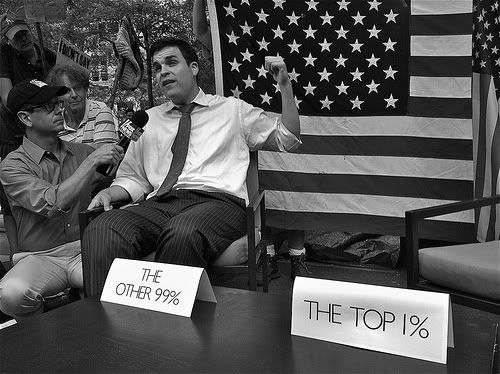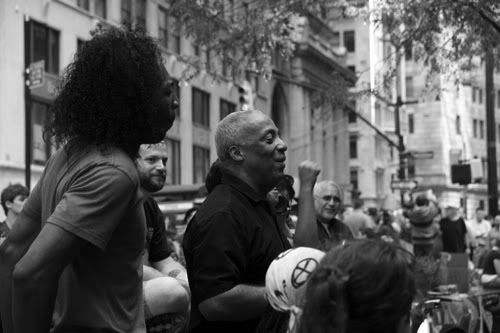This protest has gotten shockingly little coverage in the mainstream media. The New York Times, after two weeks of gathering protest, had yet to run a story on it. This is not surprising, as most mainstream media is owned by large corporations.
Most coverage of this phenomenon has been shared by individuals and groups that are not corporate-funded, through social media sites like twitter, facebook, and blogs, much like how the Kelly Thomas police brutality case came to light in Fullerton, CA.
The protest is serving to hi-light a fundamental shift in how people receive news and information. No longer do you need corporate backing, ads, and a huge budget to share your ideas. All you need is a facebook or twitter account, or a blog. In this way, mass media is being democratized, and this is very exciting.
Among the few major news outlets who have covered the protests, there seems to be a common criticism: OccupyWallStreet is not associated with a pre-existing group or institution. Eric Augenbraun of UK's The Guardian wrote: "Without any clear definition of goals or constituency, without organisation of a leadership structure or an attempt to form coalitions with established movements, they are likely to skew towards a voluntaristic politics...In all probability, Occupy Wall Street will achieve no measurable political change."
I think Augenbraun is missing the point of the protests. The protesters are speaking out against a system that recognizes large groups (corporations, unions, etc) over individual humans. In organizing a leaderless and diverse protest, OccupyWallStreet is defying this mindset. "We are the 99 percent!" they shout, meaning they speak for individual human beings, not big groups. Because large groups like corporations and unions are so deeply "in bed" with the current political system, any systematic change must defy this inherently anti-democratic paradigm.
I think Augenbraun is also misguided in his criticism of OccupyWallStreet for not having a specific list of demands. They don't have a specific list of demands because the problems they are addressing (the shady relationship between big business and government) are so deeply-rooted, so systemic, that they cannot be changed by any specific piece of legislation. We all know how compromised and ineffectual legislation has become because of varying corporate and union interests.
Having said that, I would humbly propose a few demands that OccupyWallStreet might consider:
1.) Change campaign finance law so than only individual human beings with physical bodies (i.e. not corporations or unions) may contribute to people seeking office.
2.) Cap the limit of campaign contributions to $25.
I think that would be a good start.


